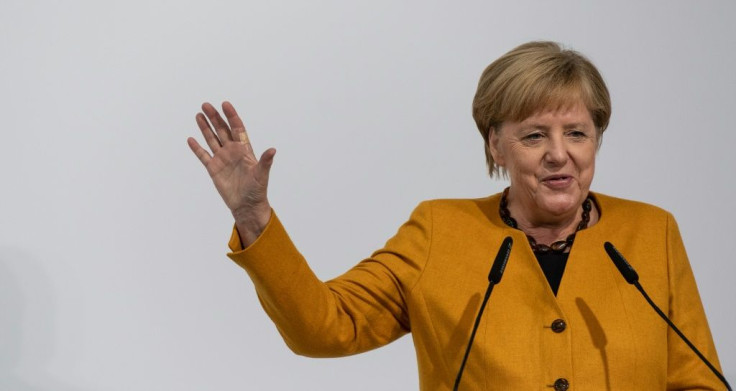Could Germany Be On The Brink Of Recession? Government Set To Release Economic Figures

The German government will release its official third-quarter GDP figures Thursday, as the country faces a troubled outlook due to trade tensions and a looming Brexit. In the second quarter, German GDP decreased by 0.1%, which means that if Germany's GDP in the third quarter declines, the country would technically be in a recession, it's first since 2013.
When the second quarter GDP report was released, ING Germany economist Carsten Brzeski said it "marks the end of a golden decade for the German economy." But last week, a report from Germany's statistics agency suggested that exports from Germany rose by 1.5% in September, ahead of market projections of a 0.3% increase.
An increase in exports is important news for Germany. The country's economy relies heavily on well-made exports of automobiles and machinery. Many German exports come from the "Mittelstand," a German term denoting the country's small and mid-sized companies, which make up the heart of its economy.
Yet Germany's exporters still face major woes. German automakers such as Daimler have reported a decline in sales to China, an important trading partner which is undergoing an economic slowdown. President Trump's trade war with the Chinese is also having an effect on German companies.
A possible no-deal Brexit could cause harm to the German economy. A study by two major German universities claims that the 100,000 German jobs could be affected if the U.K. leaves the bloc without a deal.
The German economy had been growing since the mid-2000's, with Chancellor Angela Merkel pushing through tax cuts and government stimulus. Some credit Merkel's predecessor, Gerhard Schroeder, for the economic boom during the Merkel years, as he had transformed Germany's welfare state and streamlined labor laws.
© Copyright IBTimes 2024. All rights reserved.





















